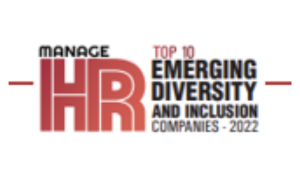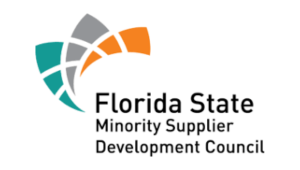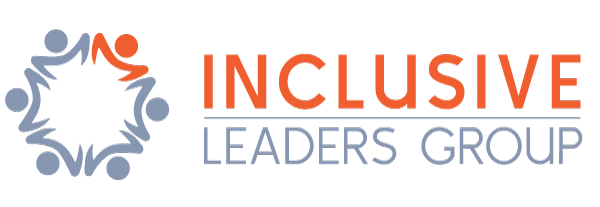What is workplace neurodiversity?
Neurodiversity encompasses the natural range of brain functioning variations, such as autism, ADHD, dyslexia, and more, among individuals. It addresses cognitive differences within the framework of the social model of disability, which highlights the impact of societal barriers on disabled individuals.
“Neurodiversity in the workplace” pertains to an organization’s stance and strategy regarding neurodiversity:
- Does it provide accommodations for neurodiverse employees?
- Does it train its managers to support all staff, regardless of neurodiversity?
- Importantly, does it actively cultivate a culture of neurodiverse employee inclusion?
Your company’s responses can significantly impact its ability to attract neurodiverse talent.
Neurodiversity as a Competitive Advantage in Business
In recent years, the concept of neurodiversity has gained traction in the workplace, with some companies acknowledging that these differences can make for a competitive advantage. When a workplace accepts a neurodivergent person, the implication is that they are tolerated despite their differences.
There are excellent examples of organizations appreciating the value of recruiting neurodiverse employees:
Ernst & Young (EY) has a program called Neurodiversity Centres of Excellence, which aims to provide employment opportunities for individuals with neurodiverse conditions such as ADHD, dyslexia, and autism. The program includes support and accommodations for neurodiverse employees and provides training for managers and colleagues to create a more inclusive workplace.
Hewlett Packard Enterprise (HPE) has a program called Dandelion, which aims to provide employment opportunities for autistic people. The program includes six-month training in skills such as software testing and data analysis.
SAP, a multinational software corporation, hosts an internationally recognized Autism at Work program that operates in 12 countries and employs approximately 150 autistic people. The program leverages the unique abilities, talents, strengths, and perspectives of autistic people to foster innovation within the company. Participants fill rolls in a wide range of job areas, such as HR, marketing, finance, software development and customer support.
While there is no one ‘type’ of neurodivergent person, we tend to find that skills often congregate in certain areas,” says Alison Kay, Managing Partner, EMEIA at professional services firm EY. “Their skills can be in creativity and empathy, or more analytical and data-led—analytical thinking, complex problem-solving, programming, ideation, hyper-focus. It varies from person to person.”
7 Reasons Why Neurodiversity Inclusion Provides a Competitive Advantage
- Diverse Perspectives
One of the main benefits of neurodiversity in the workplace is the variety of perspectives it brings. Neurodivergent people can bring to the company ways of thinking and problem-solving that lead to innovative and creative ideas. By recruiting and retaining neurodivergent individuals in the workplace, companies expand creativity in their teams, which can provide a competitive edge.
- Attention to Detail
Autistic people and people with ADHD can demonstrate a strong attention to detail and spot patterns and errors that others might miss. This skill is particularly useful in fields such as software development, quality control, and data analysis. By hiring neurodivergent individuals, companies can improve the accuracy and quality of their work, leading to greater customer satisfaction and more efficient operations.
- Increased Productivity
Like most of us, neurodivergent people can be highly productive when given tasks that align with their strengths and interests. When understood and well-integrated into a supportive work environment that plays to people’s strengths, a company with a neurodiverse workforce is leveraging everyone’s particular skills and abilities = increased employee wellbeing and job satisfaction = increased productivity.
- Improved Employee Retention
Neurodivergent folks often face challenges in the workplace such as discrimination that can be the result of a lack of understanding by which I mean knowledge about neurodiversity, not understanding as in sympathetically accepting. By creating a well-informed and inclusive work environment, companies can improve employee retention and reduce turnover. This can save companies significant costs associated with recruiting and training new employees as well as costs and concerns related to employee morale.
- Competitive Advantage in Recruitment
In today’s competitive job market, companies that actually appreciate neurodiversity can stand out as employers of choice. By making transparent their commitment to diversity and inclusion, companies can attract a wider pool of candidates and tap into the talents of neurodivergent people who might not otherwise apply.
- Increased Social Responsibility
Neurodiversity is not just a trend. And it isn’t charity to recruit and retain neurodivergent people. It is, however, socially responsible to be able to acknowledge previously exclusive employment practices and update those practices to align with ethical, inclusive practices. When it comes to the bottom line, companies that can demonstrate their commitment to social responsibility and ethical business practices will attract customers and clients who priorities diversity and inclusion in their purchasing decisions.
- Benefits for the Bottom Line–
Beyond the ethical imperative, neurodiversity offers compelling business advantages. Companies that prioritize this concept often experience enhanced employee engagement, reduced turnover rates, improved team collaboration, and an upsurge in overall productivity.
Final Thoughts
The growing recognition of neurodiversity as a competitive advantage emphasizes the importance of DEI as business strategy. Recruiting individuals with different cognitive background doesn’t just strengthen the corporate culture; it drives creativity, innovation and elevates organizations to the forefront of their industries. In today’s competitive environment, where adaptability and innovation are an imperative, neurodiversity isn’t just a concept – it’s a catalyst for growth and success.








